(187681 products available)








































































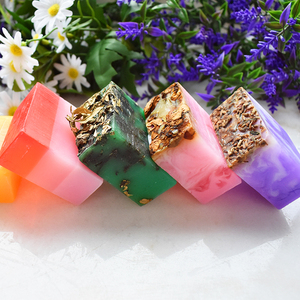
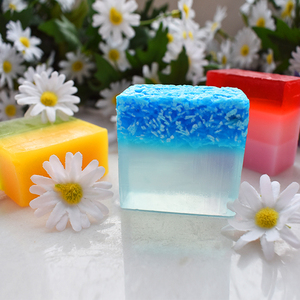


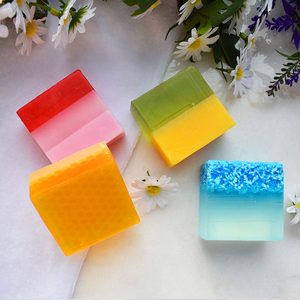


















































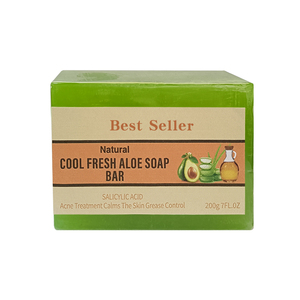

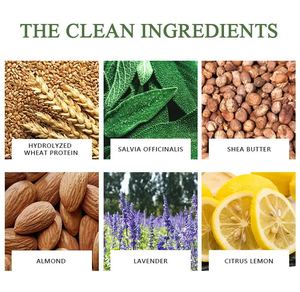







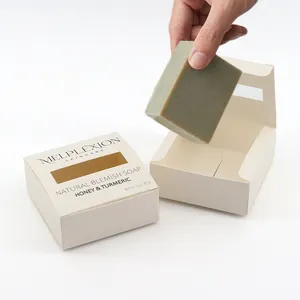























































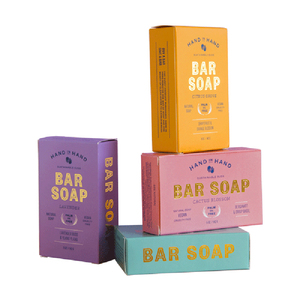









Market Size: The global market for custom soap bars is estimated to reach approximately $45.8 billion by 2030, growing at a compound annual growth rate (CAGR) of 4.2% from 2023 to 2030. This growth reflects a rising consumer preference for personalized skincare solutions and the increasing demand for natural ingredients. Notably, the market saw a volume of about 16.1 billion units in 2022, with a notable year-on-year growth of 7% in sales.
Consumer Insights: Target demographics for custom soap bars primarily include health-conscious millennials, Gen Z, and older generations seeking sustainable and organic options. Key purchasing drivers encompass product efficacy, ingredient transparency, and eco-friendly certifications. Reports indicate that consumers are increasingly inclined towards vegan and organic products, with a significant portion seeking soaps that are free from harmful chemicals. The trend towards artisanal and unique soap formulations, such as those with distinctive fragrances and textures, is also gaining traction, addressing unmet needs in the market.
Top Brands Dynamics and Innovators: Leading brands are innovating by launching products that incorporate premium and heritage ingredients, with companies like Lush Retail and The Body Shop focusing on natural formulations. For instance, the introduction of transparent and visually appealing soap bars aligns with consumer desires for aesthetically pleasing and functional products. The expansion of e-commerce platforms further supports niche producers, allowing them to reach broader audiences and enhance brand visibility through consumer reviews and social media engagement.
There are different types of custom soap that buyers can personalize. Some of these soaps are discussed below:
Glycerin soaps
Glycerin soap is a clear, semi-transparent bar. It contains glycerin, a natural humectant. The skin feels hydrated and smooth after using the soap. It locks moisture into the skin. Glycerin soap is gentle on the skin. It does not contain any harsh chemicals. People who have sensitive skin can use it. The clear appearance of the soap makes it good for custom shapes. Buyers can get glycerin soap in different colors and scents.
Organic soaps
Organic soaps use natural and plant-based materials. They contain essential oils, plant extracts, and organic oils. The oils come from palm, coconut, and olive plants. The lathering agent is made from natural sources. Organic soap has many health benefits. It is free from all the harmful chemicals found in regular soaps. People with sensitive skin can use it. Those who are concerned about the environment will prefer organic soap. No animal testing is done during production. The manufacturing process has a low impact on the environment.
Shea butter soaps
Shea butter is extracted from the nut of the African shea tree. It has anti-inflammatory and moisturizing properties. Using the soap can reduce skin swelling. It keeps the skin soft and smooth. The antioxidants in shea butter help to fight free radicals. Custom shea butter soaps are available in different scents and colors.
Herbal soaps
Herbal soap is made with herbs or plants. The herbs are extracted using different methods. Some are infused into the base oil, while others are distilled into essential oils. Custom herbal soap has the following benefits: The antioxidants in the herbs fight free radicals and prevent early wrinkles. Some herbs have anti-inflammatory properties that help to reduce skin swelling. Others help to soothe rashes and irritation. Herbal soap also hydrates the skin.
Exfoliating soaps
Exfoliating soaps have ingredients that create a rough texture. This roughness helps to exfoliate the skin. Common ingredients used for exfoliation are seeds, oatmeal, coffee, and salt. Some exfoliating soaps are made with shea butter, oatmeal, and honey. Others are coffee and glycerin soap.
Loofah soap
Loofah soap has a piece of loofah sponge embedded in it. The sponge has a rough texture that exfoliates the skin. It removes dead skin cells and promotes blood circulation. The persistent fragrance of the soap leaves a lasting impression. Loofah soap is available in many colors and scents. Buyers can choose a custom package for the soap.
Antibacterial soaps
Antibacterial soaps are made with essential oils that have antibacterial properties. These oils can fight bacteria and prevent them from thriving on the skin. Some antibacterial custom soaps also contain alcohol. It helps to kill bacteria on the skin. The soap is an excellent choice for people who have frequent infections.
Skin type:
Soaps made with natural ingredients are beneficial for all skin types. For sensitive skin, opt for custom soaps that contain hypoallergenic ingredients. For dry skin, use soap with moisturizing ingredients like glycerin, coconut oil, and shea butter. Soap with salicylic acid, glycolic acid, or beta hydroxyl acid is good for oily skin as it helps control excess sebum production.
Health considerations:
When choosing soap, take into consideration any existing health issues. If one has eczema, psoriasis, or other skin conditions, it is important to use mild soap that will not aggravate the condition.
Fragrance:
Fragrances can be relaxing, energizing, or uplifting. They add an enjoyable sensory element to the bathing experience. However, some may cause allergic reactions. Choose a fragrance that one enjoys. If one has sensitive skin, opt for a soap with natural fragrance or no fragrance at all.
Ingredients:
Natural custom soap is made with essential oils and plant-based ingredients. They are generally gentler on the skin than synthetic soaps. Look for soaps rich in antioxidants that will nourish the skin, such as olive oil, coconut oil, and shea butter.
Brand reputation:
When choosing custom soaps, look for brands that have established a reputation for quality and trustworthiness. Read reviews and ask for recommendations from people who have used the product. Choose brands that are known for using high-quality, natural ingredients and have a commitment to customer satisfaction.
Packaging and presentation:
It is important to choose custom soaps that have packaging that protects the product from contamination and maintains its quality. Look for packaging that is practical and easy to use. For gifts or special occasions, choose custom soaps that have attractive packaging and presentation.
Value for money:
When purchasing custom soaps in bulk, consider the cost and the value it brings. While some natural soaps may be priced higher than synthetic ones, their benefits for the skin justify the investment. Look for custom soaps that offer a balance between quality and affordability.
Using custom soap has many benefits. It is ideal for personal hygiene and skincare. The following are some simple steps for using custom soap.
Washing Hands
Hands should be washed frequently to remove germs and bacteria. Wet the hands under running water. Then, rub the custom soap bar on the hands several times. If it is liquid soap, pump some soap onto the hands. Lather the soap and spread it all over the hands by rubbing the hands together. Ensure the soap gets into the fingers, under the nails, and the wrist. Wash the hands under running water until all the soap is gone.
Bathing
For bathing, get a washcloth or bath sponge. Wet the cloth or sponge and rub it on the soap bar until it lathers. Start washing the body from the neck down. Gently scrub the body and spread the lather all over the body. Wash the armpits, stomach, back, and legs. Rinse the washcloth or sponge frequently to remove the soap. Continue until the whole body is clean. Rinse the body with water to wash off all the soap.
Facial Cleansing
When using custom soap for facial cleansing, use a damp facial cloth. Wet the soap and rub it on the cloth. Wipe the face gently, going over the forehead, nose, cheeks, and chin. Wash off the soap with clean water. Use a moisturizer to keep the face smooth.
Custom soap is a safe option for cleansing and moisturizing the skin. Most reputable manufacturers use safe and approved ingredients in the right proportions. The potentially harmful ingredients, like parabens, sulfates, or phthalates, are not part of the custom soap. However, some soaps may have ingredients that irritate the skin. This includes strong fragrances or high alkaline content. Always check the labels and choose soaps with natural ingredients and mild scents. Also, opt for soaps that suit the user's skin type. For sensitive skin, hypoallergenic soaps are a good choice. When using any new soap, do a patch test by applying it on a small skin area. Check for any adverse reaction after 24 hours. If the skin becomes red or itchy, discontinue use. It is also advisable to keep custom soap out of the reach of children.
Soaps have many functions that benefit the skin and the environment. Some of them are:
Every custom soap has unique features that make it stand out. Some of these features include:
Custom soaps are made in different designs. Some are made in a single bar, while others are made in multiple bars. They can also be made in unique shapes like flowers, fruits, and animals.
Q1. What is the lead time for custom soaps?
A1. It depends on the quantity and the complexity of the order. Typically, custom soap manufacturers take 4 to 6 weeks to complete an order. This duration includes the time taken to approve the samples, the packaging, and the actual soap production.
Q2. What details should buyers provide to custom soap makers?
A2. Buyers should specify the type of soap, size, quantity, preferred scents, colors, and any other unique detail they want. They should also provide information about the target market so that custom soap makers can create a product that meets the needs of the end users.
Q3. Can buyers get samples?
A3. Yes. Custom soap makers provide samples upon request. Some manufacturers offer the samples free of charge while others may require buyers to pay a small fee or cover the shipping costs. Getting samples helps businesses assess the quality of the soap before making a bulk order.
Q4. What are the payment terms for bulk custom soap orders?
A4. Different manufacturers have different payment terms. Some manufacturers require business buyers to pay a deposit before production starts and pay the balance before delivery. The deposit amount can be between 30% to 50% of the total cost. Other manufacturers require business buyers to make full payments before they can release the products. Generally, payment can be made through bank transfers, credit cards, or PayPal.
Q5. Are custom soaps packaged for retail?
A5. Yes. Custom soaps are packaged for retail. Soap makers have different types of packaging that can be used for bars and liquid soaps. They can package the soap in boxes, pouches, or plastic bottles. Buyers can also request for packaging that is suitable for their preferred market.